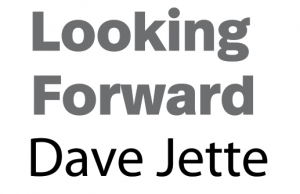Fascism is a set of behaviors
In Thinking Like a Terrorist, published in 2008, Mike German proposes a Government Accountability Scale ranging from “fascism” to a “free government” (democracy). He points out that most governments fall somewhere between these two extremes. One purpose of making such an evaluation is to determine the legitimacy of terrorist groups’ calls for self-determination. For instance, attacking a fascist government would likely be considered justifiable, but attacking a democratic government would not be legitimate. (This consideration is independent of the particular acts of the terrorist group.)
What concerns us here is to understand the characteristics of fascism, so that we can prevent its rise in a basically democratic country such as ours. It’s useful first to make clear the features of a “free government” that occupies the opposite end of the scale. German provides the following list:
Respect for the supremacy of the law
- Free and fair elections
- Freedom of speech and assembly
- Freedom of the press
- Freedom of religion
- Due process of law and an independent judiciary
- Legal protections of minority rights
- The right to a publicly funded education
- The right to private property and free markets
- Civilian control of the military
- Open access to government records
- The freedom to emigrate
Except for the evidently unrestricted free markets, hopefully socialists will strive to fully implement these points, notwithstanding that some socialists (myself included) see a substantial role for small-scale private enterprise for an indefinite period. (Please see my column on Ralph Miliband’s practical model of socialism published in June 2020.)
Quoting Robert O. Paxton’s The Anatomy of Fascism, published in 2004, German lists the “mobilizing passions” that drive the political behavior that marks fascist regimes:
- A sense of overwhelming crisis beyond the reach of any traditional solutions
- The primacy of the group, toward which one has duties superior to every right, whether individual or universal, and the subordination of the individual to it
- The belief that one’s group is a victim, a sentiment that justifies any action, without legal or moral limits, against enemies internal and external
- Dread of the group’s decline under the corrosive effects of individualist liberalism, class conflict, and alien influences
- The need for closer integration of a purer community, by consent if possible; by exclusionary violence if necessary
- The need for authority by natural chiefs (always male), culminating in a national chieftain who alone is capable of incarnating the group’s historical destiny
- The superiority of the leader’s instinct over abstract and universal reason
- The beauty of violence and efficacy of will, when they are devoted to the group’s success
- The right of the chosen people to dominate others without restraint from any kind of human or divine law, right being decided by the sole criterion of the group’s prowess within a Darwinian struggle
Observing the adherence to such passions helps us to identify where persons are on the fascism-democracy scale. Which brings us to the question: Are die-hard supporters of Trump fascists? There are various ways in which they differ from the Nazis of Germany, so socialists dismiss the fear that Trump has been laying the groundwork for fascism in our country.
But while all Nazis are fascists, not all fascists are Nazis. As Germany emphasizes, Nazism is a particular militant, racist, anti-Semitic political philosophy. “Fascism,” by contrast, is not an ideology but rather a set of behaviors—“a method of securing and exercising political power.”
The advantage of German’s Government Accountability Scale is that it allows people’s outlook to be placed in the continuum between outright fascism and full-fledged democracy. The danger is not simply from those who are full-fledged fascists but also—more importantly—from those who are approaching the extreme of fascism. Thus it is the latter group of people whose views we have to combat by vigorously promoting democracy. In this sense the die-hard supporters of Trump indeed are fascists, and we must not be lulled to sleep by the claim that many of them are not Nazi fascists.
Of further interest: In 2019 Mike German published a book Disrupt, Discredit, and Divide: How the new FBI Damages Democracy. It shows how FBI leaders exploited the fear of terrorism in the aftermath of 9/11. They used this fear to shed legal constraints imposed on them in the wake of Hoover-era civil rights abuses, and as a consequence, undermined public confidence in justice and the rule of law.
Dave Jette writes this bi-monthly column and has been involved with Works in Progress since its beginnings. His three books are available at www.lulu.com: A Reformulation of Dialectical Materialism, which incorporates feminist theory into a traditional Marxist framework; Beyond Classical Marxism, about socialism and how to bring it about in the US; and Looking Forward, mainly offering the columns that appear here over time.

Be First to Comment